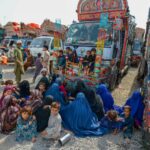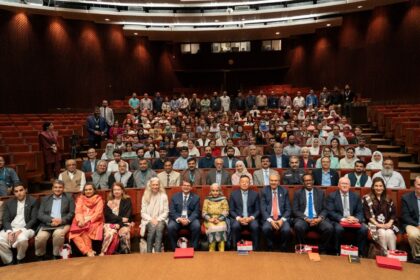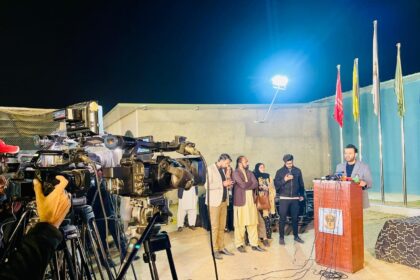Effective and Empowered Local Government — The Foundation of Public Participation
By: Zaheer Ahmed Awan
Across the world, the system of local government forms the foundation of public service and democratic participation. It empowers citizens, addresses their basic needs at the grassroots level, and reduces the burden on central and provincial administrations. The experience of developed nations clearly proves that sustainable development and good governance are only possible when the power to make decisions is devolved to the people.
For countries like Pakistan, genuine democracy can only take root when power truly reaches villages, neighborhoods, and union councils.
Successful Local Governance Models Around the World
Almost every developed nation owes its progress to strong, transparent, and financially independent local governments. These institutions ensure accountability, people’s participation, and efficient public service delivery.
United Kingdom:
The foundation of local governance in the UK was laid with the Municipal Corporations Act of 1835, which granted administrative and financial autonomy to municipal councils. Today, every city and town has its own Local Council responsible for education, sanitation, housing, health, parks, and infrastructure. Councils collect their own taxes and manage their budgets independently, ensuring that citizens receive services at their doorstep.
United States:
In the United States, the tradition of local self-government dates back to colonial times. Every state has thousands of elected county governments, city councils, and school boards. Local governments oversee public safety, education, housing, and utilities. They enjoy both administrative and financial independence, and citizens trust that their taxes are directly reinvested in community welfare.
Scandinavian Countries (Sweden, Denmark, Norway):
These nations allocate nearly 60% of their national budgets to local governments. Under Sweden’s Local Government Act of 1991, municipalities have full authority over education, healthcare, social welfare, and employment programs. Transparency, local taxation, and participatory planning make their governance models among the most efficient in the world.
India:
India’s 73rd and 74th Constitutional Amendments (1992) granted constitutional status to the Panchayati Raj (rural councils) and Urban Local Bodies. These reforms established elected councils at village, block, and district levels. Today, India has over 250,000 local councils, with reserved seats for women, laborers, and farmers—ensuring inclusive governance and grassroots democracy.
Turkey:
Turkey’s Municipal Law No. 5216 (2004) and Local Administration Reform gave municipalities both political and fiscal autonomy. Every city elects its mayor and local council, which manages urban planning, transportation, waste management, education, and healthcare. This reform has modernized Turkey’s urban landscape and strengthened local accountability.
Indonesia:
Indonesia’s Decentralization Law No. 22/1999 empowered over 500 district and city governments with independent administrative and fiscal authority. The law transferred decision-making power to local communities, promoting transparency and regional development.
These global models prove one undeniable truth: when citizens participate directly in decision-making, states become stronger, corruption declines, and development accelerates.
Evolution of Local Government in Pakistan
Pakistan’s journey with local government has been marked by discontinuity. Military regimes often strengthened local bodies, while civilian governments either suspended or weakened them. Yet, every era of active local governance has shown clear benefits for the public.
Ayub Khan’s Basic Democracies System (1959):
The Basic Democracies Order of 1959 was Pakistan’s first organized local governance framework. Local representatives were empowered to undertake development projects. Although politically motivated, the system succeeded in improving rural infrastructure, education, and basic healthcare.
General Zia-ul-Haq’s Local Government Ordinance (1979):
Zia-ul-Haq revived local institutions through the Local Government Ordinance of 1979. Elections were held at the union, tehsil, and district levels. Local representatives played an active role in municipal services, development schemes, and community welfare, marking a significant phase of grassroots governance.
General Pervez Musharraf’s Devolution Plan (2001):
The Devolution of Power Plan (2001) remains Pakistan’s most effective and comprehensive local government framework. Under this system, elected Nazims, Naib Nazims, Tehsil and District Councils, Lady Councillors, Youth Representatives, and Labor Councillors operated with substantial administrative and financial autonomy.
For the first time, the police, deputy commissioners, and district officers were made answerable to elected local representatives. Musalihat Anjumans (conciliation councils) were established at the union council level, resolving family and property disputes locally—thereby reducing the burden on courts and police. It was a genuine transfer of power to the people.
Why Politicians Resist Local Governance
Feudal and hereditary political families in Pakistan have historically viewed local government as a threat to their dominance.
Local councils allow ordinary citizens—teachers, farmers, shopkeepers, youth, and women—to rise as community leaders. This democratization of power directly challenges the control of powerful political elites. Consequently, each time a civilian government came into power, it either delayed local elections or curtailed the authority of local councils.
This political resistance has weakened governance and increased the distance between the state and its citizens.
Socio-Economic Benefits of a Strong Local Government1. Immediate Problem-Solving:
Local representatives understand community issues better and can resolve them quickly without bureaucratic delays.
2. Transparent Tax Collection:
When taxes are collected and utilized locally, transparency improves, corruption decreases, and public trust strengthens.
3. Reduced Judicial and Administrative Burden:
Local reconciliation councils can settle family, property, and business disputes, easing the caseload of courts and police.
4. Effective Anti-Corruption Mechanism:
Decentralization divides power, enhances accountability, and allows citizens to directly question their representatives.
5. National Economic Stability:
When every union council manages its own revenue and development projects, the national treasury is relieved, and dependence on foreign loans diminishes.
Conclusion
Pakistan’s progress, prosperity, and stability depend upon genuine public participation in governance.
An empowered, transparent, and autonomous local government system is not just an administrative requirement—it is the very essence of democracy.
Only by devolving power to the grassroots can we eliminate corruption, restore accountability, and ensure equitable development.
The strength of a nation lies in the strength of its people—and that strength begins with effective and empowered local governance.
References
- Municipal Corporations Act, United Kingdom (1835)
- Local Government Act, Sweden (1991)
- 73rd & 74th Constitutional Amendments, India (1992)
- Municipal Law No. 5216, Turkey (2004)
- Decentralization Law No. 22/1999, Indonesia
- Basic Democracies Order, Pakistan (1959)
- Local Government Ordinance, Pakistan (1979)
- Devolution of Power Plan, Pakistan (2001)











